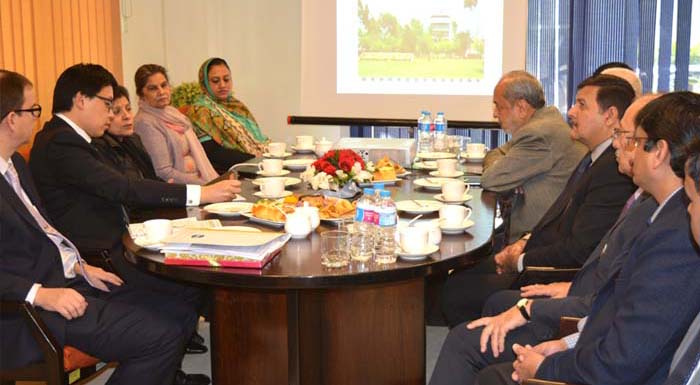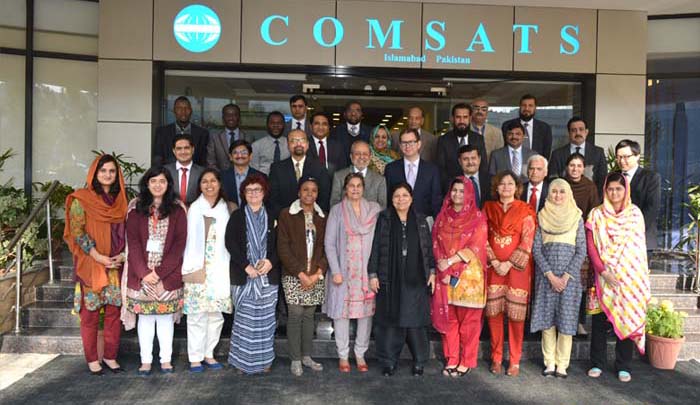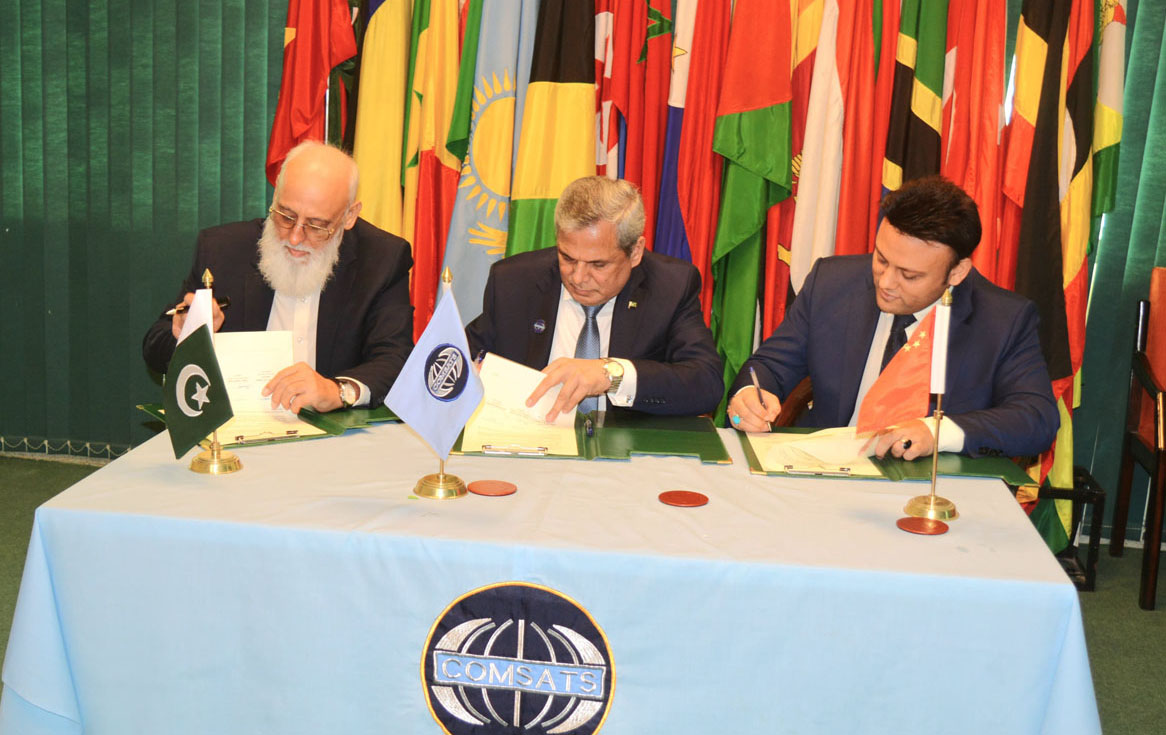On the invitation of the Executive Director of the Commission on Science and Technology for Sustainable Development in the South (COMSATS) Dr. S. M. Junaid Zaidi, UN Under-Secretary General and Executive Secretary of UN Economic and Social Commission for Asia and the Pacific (ESCAP), Dr. Shamshad Akhtar, visited COMSATS Secretariat on 20 December 2017. She was accompanied by Mr. Jonathan Wong, Chief Technology and Innovation, Trade, Investment and Innovation Division, and Mr. Michael Williamson, Head, South and South-West Asia Office.
Earlier contacts with UNESCAP were established as a part of COMSATS 2017 strategy to explore ways of benefitting from the scientific and other related knowledge generated in the North and other global institutions recognising them as useful resources for meeting the sustainable development challenges confronted by the South. With this in view, a delegation of COMSATS called on the Secretary General ESCAP in October 2017 and briefed her on the aims, objectives, structure and functions of COMSATS. Exploratory views were exchanged on the possible areas of collaboration.
As a follow up to this process, more in-depth discussions were held during the 20th December meeting between Dr. Akhtar and Dr. Zaidi. The salient features of this discussion are given below:
- COMSATS noted with appreciation the wide ranging activities of ESCAP centering on fostering UN’s regional development goals through strategies that encourage cooperation among its members and the linkage it provides between global and country- level programmes and issues through regional approaches to solutions to the socio-economic challenges and policy advocacy;
- COMSATS’ commitment to sustainable socio-economic development in the member countries in: Africa, Asia, and Latin America was highlighted together with the Commission’s thrust on the use of science, technology and innovation;
- With Bangladesh, China, Iran, Kazakhstan, North Korea, Pakistan, Philippines, Sri Lanka, Turkey as common member states of ESCAP and COMSATS, the two organizations have a large scope for complementing their initiatives in areas of mutual interest;
- Given its diverse nature of membership, ESCAP would assist COMSATS in increasing its membership and the Network of Centres of Excellence;
- Based on the commonality of aims and objectives, both COMSATS and ESCAP can potentially complement their work in areas such as: climate change, sustainable development, e-health and ICTs;
- The two organizations recognised that cooperation can be enhanced in diverse fields of Science and Technology by developing scientific research capacities through pooling of human resources and strengthening scientific infrastructure in member states;
- The Secretary General, ESCAP and Executive Director COMSATS agreed to forge collaboration on the following lines, to be finalised through signing of an agreement between the two sides:
i. ESCAP’s possible facilitation in establishing institutions like COMSATS’ flagship project “COMSATS Institute of Information Technology (CIIT)” in other member countries of COMSATS;
ii. Setting up of Climate Change Research Institute in one of the member states of COMSATS with the help of ESCAP with the involvement of UNFCCC in the realization of this project;
iii. Encourage Interaction between COMSATS and ESCAP, as well as cooperation with other UN agencies;
iv. ESCAP offered to help COMSATS in promoting policy dialogue on science, technology and innovation in the member countries with the involvement of respective governments;
v. With reference to ESCAP’s ongoing south-south exchange platform on ST&I, ESCAP would find ways to engage COMSATS’ member countries in this initiative. - The meeting ended with both sides agreeing to continue follow-up dialogues and enhancing engagement between the two Commissions..
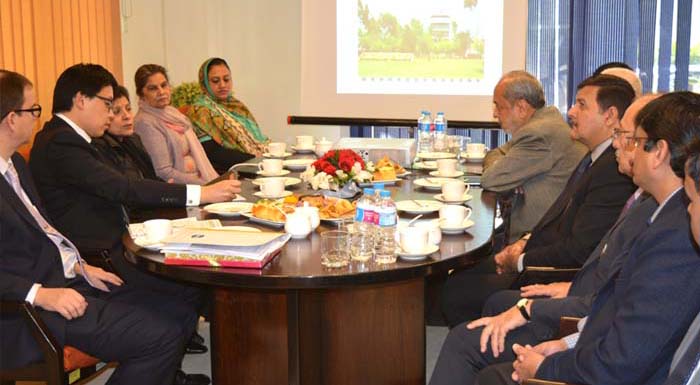 |
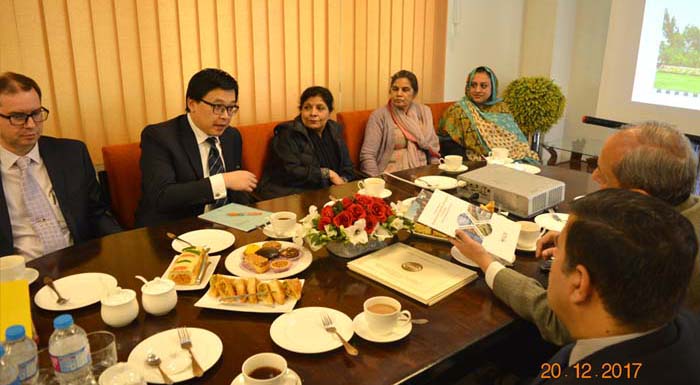 |

